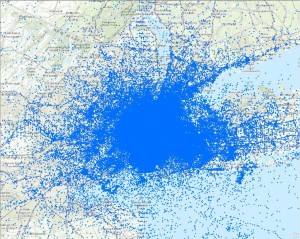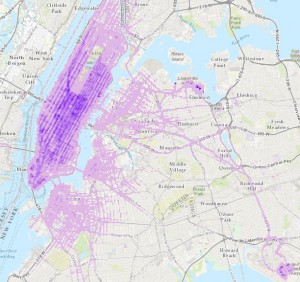Spatial Data on the Web Working Group
From the webpage:
The mission of the Spatial Data on the Web Working Group is to clarify and formalize the relevant standards landscape. In particular:
- to determine how spatial information can best be integrated with other data on the Web;
- to determine how machines and people can discover that different facts in different datasets relate to the same place, especially when ‘place’ is expressed in different ways and at different levels of granularity;
- to identify and assess existing methods and tools and then create a set of best practices for their use;
where desirable, to complete the standardization of informal technologies already in widespread use.
The Spatial Data on the Web WG is part of the Data Activity and is explicitly chartered to work in collaboration with the Open Geospatial Consortium (OGC), in particular, the Spatial Data on the Web Task Force of the Geosemantics Domain Working Group. Formally, each standards body has established its own group with its own charter and operates under the respective organization’s rules of membership, however, the ‘two groups’ will work together very closely and create a set of common outputs that are expected to be adopted as standards by both W3C and OGC and to be jointly branded.
Read the charter and join the Working Group.
Just when I think the W3C has broken free of RDF/OWL, I see one of the deliverables is “OWL Time Ontology.”
Some people never give up.
There is a bright shiny lesson about the success of deep learning. It doesn’t start with any rules. Just like people don’t start with any rules.
Logic isn’t how we get anywhere. Logic is how we justify our previous arrival.
Do you see the difference?
I first saw this in a tweet by Marin Dimitrov.

